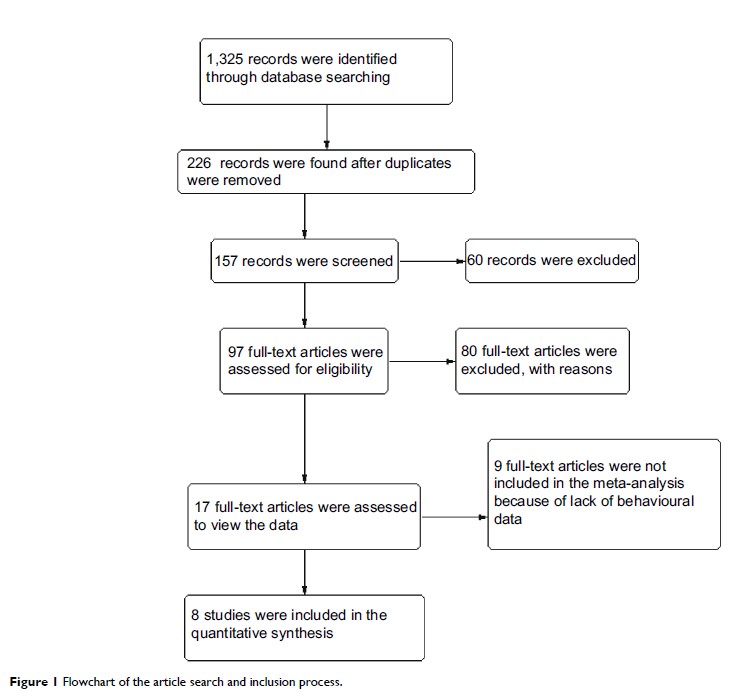108384
论文已发表
注册即可获取德孚的最新动态
IF 收录期刊
- 3.4 Breast Cancer (Dove Med Press)
- 3.2 Clin Epidemiol
- 2.6 Cancer Manag Res
- 2.9 Infect Drug Resist
- 3.7 Clin Interv Aging
- 5.1 Drug Des Dev Ther
- 3.1 Int J Chronic Obstr
- 6.6 Int J Nanomed
- 2.6 Int J Women's Health
- 2.9 Neuropsych Dis Treat
- 2.8 OncoTargets Ther
- 2.0 Patient Prefer Adher
- 2.2 Ther Clin Risk Manag
- 2.5 J Pain Res
- 3.0 Diabet Metab Synd Ob
- 3.2 Psychol Res Behav Ma
- 3.4 Nat Sci Sleep
- 1.8 Pharmgenomics Pers Med
- 2.0 Risk Manag Healthc Policy
- 4.1 J Inflamm Res
- 2.0 Int J Gen Med
- 3.4 J Hepatocell Carcinoma
- 3.0 J Asthma Allergy
- 2.2 Clin Cosmet Investig Dermatol
- 2.4 J Multidiscip Healthc

实验引起的疼痛会影响注意力吗?荟萃分析评论
Authors Gong W, Fan L, Luo F
Received 16 August 2018
Accepted for publication 4 January 2019
Published 4 February 2019 Volume 2019:12 Pages 585—595
DOI https://doi.org/10.2147/JPR.S184183
Checked for plagiarism Yes
Review by Single-blind
Peer reviewers approved by Dr Colin Mak
Peer reviewer comments 2
Editor who approved publication: Dr Katherine Hanlon
Background: Recent
studies have found that clinical pain is related to cognitive impairment.
However, there remains a scarcity of systematic reviews on the influence of
acute pain on attention. Laboratory-induced pain is often used to simulate
acute pain. The current systematic meta-analysis aimed to evaluate the effect
of induced-pain on three components of attention (orienting, alerting, and
executive attention) in healthy subjects.
Methods: A
systematic search of three databases was performed. Only data from studies that
administered laboratory-induced pain and that also included a control group
were selected. The effects of experimental pain on orienting attention,
alerting attention, and executive attention were analyzed. Two reviewers
assessed the studies and extracted relevant data according to the Cochrane
Collaboration and Preferred Reporting Items for Systematic Reviews and
Meta-Analysis Guidelines.
Results: Eight
studies were included in the meta-analysis. Orienting attention was marginally
interrupted by pain under the invalid cue and marginally facilitated by pain
under the valid cue condition. Performance on alerting attention was decreased
by pain. Executive attention was not significantly affected by pain.
Conclusion: There was
moderate evidence that experimentally induced pain can produce effects on
orienting and alerting attention but not on executive attention. This
meta-analysis suggests that experimentally induced pain influences some aspects
of attention.
Keywords: experimental
pain, attention, meta-analysis
